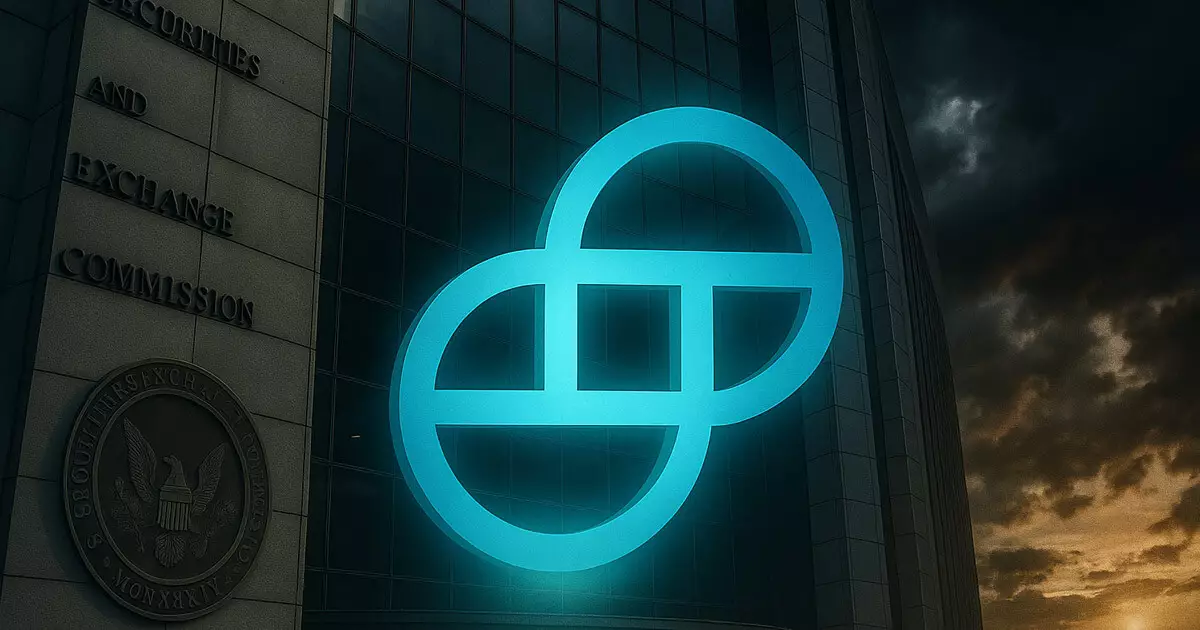Gemini, a prominent cryptocurrency exchange, has boldly taken a stand against the Commodity Futures Trading Commission (CFTC) by filing a formal complaint alleging a rampant misuse of power. As Tyler Winklevoss, the co-founder of Gemini, laid bare the issues in a recent revelation, the exchange has portrayed itself as an innocent victim ensnared in a web of bureaucratic overreach and personal ambition. This situation begs the larger question: has the CFTC strayed too far from its original mission to safeguard market integrity?
The complaint, lodged with the CFTC’s Office of the Inspector General, ostensibly highlights a troubling trend within regulatory bodies—one that prioritizes career advancement over the welfare of the constituents they are supposed to protect. Winklevoss’s assertions that CFTC lawyers have engaged in “trophy-hunting lawfare” paint a picture of an organization more concerned with accolades than accountability. This shift toward a self-serving culture raises alarms about the integrity of the regulatory framework designed to protect investors.
Prolonged Campaign Against Innocence
A critical component of Gemini’s argument lies in the duration of the enforcement action—seven years that have yielded no concrete evidence of wrongdoing. Instead, it seems the CFTC has relied on dubious testimonies from disgruntled ex-employees, lending a sense of farce to what should be a serious undertaking. As the agency continues its campaign against Gemini, it raises the uncomfortable reality that in its pursuit of victory, they might be punishing a firm that was actually an unwitting victim of an external fraud scheme. This reveals the troubling potential for regulatory bodies to create situations where the innocent bear the brunt of punitive measures.
Adding to the complexity of the situation, the CFTC managed to extract a $5 million settlement from Gemini regarding the self-certification of a Bitcoin futures product. It’s essential to note that Gemini’s settlement was not an admission of guilt but rather a calculated decision to avoid a lengthy legal fight. This ultimatum reflects a toxic atmosphere in which agencies like the CFTC can wield their power to coerce settlements from companies, even when those companies are not in the wrong.
Misallocation of Resources
Winklevoss’s claims extend beyond individual grievances to encapsulate a widespread misallocation of taxpayer dollars. When regulatory bodies prioritize personal advancement at the expense of thoughtful governance, they not only betray the public’s trust but also undermine their financial mission. The current CFTC structure seems to have devolved into a culture where internal politics overshadow the fundamental goal of market protection and transparency.
Prominent legal figures, such as Jack Baughman, have echoed these sentiments, criticizing the arrogance displayed by regulatory agents. The notion that these entities disrespect the very laws they enforce must be confronted head-on—such attitudes not only validate industry skepticism but also engender a culture of distrust among those they aim to regulate. When agencies become synonymous with intimidation rather than support, they inevitably harm the ecosystem they are supposed to uphold.
Call for Reform
In response to the alleged misdeeds of the CFTC, Gemini’s complaint suggests that a comprehensive restructuring of the agency is long overdue. Enforcements that hinge more on personal ambition than public interest tend to lead to real economic harm, as demonstrated by Gemini’s ongoing struggle. A reevaluation of internal culture and priorities within the CFTC is imperative to restore faith in regulatory oversight.
The essence of regulatory bodies lies in their ability to foster an environment of excellence, not perpetuate a culture of fear. To prevent further consequences resulting from untenable practices, regulators must be held accountable for their decisions both administratively and ethically. Only through such reforms can the CFTC minimize the risk of continued overreach and protect the interests of the marketplace it is meant to serve.
The Gemini case serves as an urgent reminder that, without proper checks and balances, regulatory entities may become instruments of excessive control rather than facilitators of fair practice. It is time for a critical reflection on how these organizations operate, lest they continue to compromise their mission and inadvertently undermine the trust that the public must place in them.


Leave a Reply